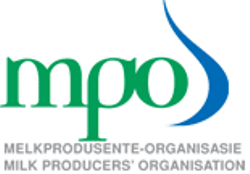
9 December 2021
For immediate release
Risks related to the fourth wave of the Covid-19 pandemic and uncertainty regarding load shedding continue to weigh on local manufacturers, despite positive news regarding domestic and export sales volumes as well as fixed investment levels, the Q4 Absa Manufacturing Survey shows.
Overall, business confidence dipped by three points to 38 during the quarter, the second consecutive quarterly decline.
“The results this quarter were a mixed bag, highlighting the ‘stop-start’ recovery the sector is facing,” said Justin Schmidt, Head of Manufacturing Sector at Absa Retail and Business Bank. “It is not surprising, given the uncertainty around the current economic situation, that manufacturers are feeling concerned about the future.”
The quarterly survey, which covers approximately 700 businesspeople in the manufacturing sector, was conducted by the Bureau for Economic Research (BER) at Stellenbosch University between 27 October and 15 November 2021. The confidence index ranges between zero and 100, with zero reflecting an extreme lack of confidence and 100 extreme confidence where all participants are satisfied with current business conditions.
According to the survey, the majority of manufacturers are feeling pessimistic about the future, with expectations regarding business conditions for the next 12 months decreasing by 12 points. “The risks surrounding the fourth wave of Covid-19, water shortages across provinces, continued load shedding at a heightened level of intensity, as well as the recent industrial action in the steel industry, have contributed to the negative outlook,” noted Schmidt.
The indicators for levels of raw material stocks relative to planned production and the level of finished goods stock relative to expected demand declined by 14 points and 5 points respectively after an improvement in the third quarter. The indicator for total cost per production unit increased by 10 points to 81 during the fourth quarter – the highest level since the third quarter of 2008.
“The shortage of raw materials and load shedding were two of the main factors behind the increase in production costs,” said Schmidt. “Plastic and steel prices, as well as the cost of transport (fuel prices and the cost of containers), were the major contributors to cost increases.”
Positively, manufacturers did not only see an improvement in their volume of domestic and export sales, but also saw a significant increase in their domestic and export selling prices. The indicator for domestic prices increased by 19 points compared to the previous quarter while the export price indicator increased by 27 points to 50 points, the highest level since the first quarter of 2002. Additionally, the manufacturing fixed investment indicator moved back into net positive terrain, increasing 10 points compared to the third quarter.
“An improvement in expectations regarding imports and exports over the next 12 months is potentially indicative of improved demand levels and the easing of shipping constraints,” added Schmidt.
Moreover, there seems to be some green shoots in terms of infrastructure development with regard to both the transportation of goods and the energy crisis, both of which will aid in driving demand for manufacturing.
For more information, please contact:
Inge Lamprecht on 082 885 4128/inge.lamprecht@absa.africa or Asha Speckman on 067 419 7085/asha.speckman@absa.africa or Zain Khan on 076 961 7041/zain.khan@absa.africa
About Absa Bank Limited
Absa Bank Limited (‘Absa Bank’) is a wholly-owned subsidiary of Absa Group Limited, which is listed on the Johannesburg Stock Exchange and is one of Africa’s largest financial services groups. Absa offers a range of retail, business, corporate and investment banking and wealth management and insurance products and services primarily in South Africa and Namibia.
For further information about Absa, please visit our website www.absa.co.za
Published on Thursday, 9th December 2021 - 11:06
Recent Posts
disclaimer









